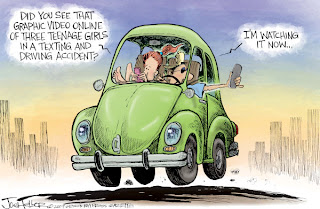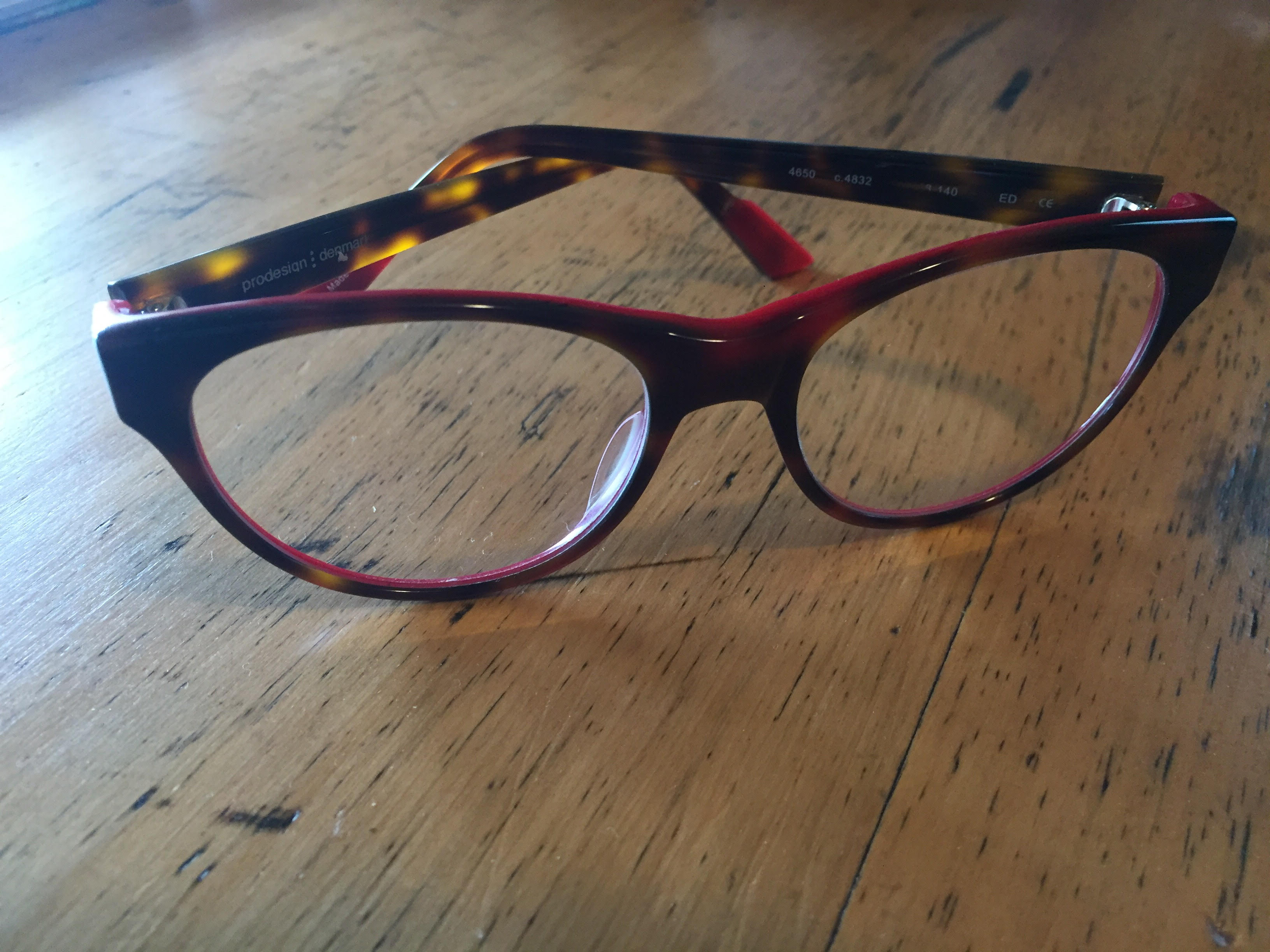It's all about making money. The more people talk and text, the more money the cell phone industry makes, and the more talking and texting in vehicles the more people d ie. 2,600 deaths and 330,000 injuries are caused each year by distracted drivers on cell phones. According to the National Safety Council, more than 1.6 million traffic crashes a year are caused by drivers using cell phones or texting, which is 28% of all vehicle wrecks. Meanwhile, the wireless communications industry makes out like bandits as it sells its fancy phones with a multitude of apps on countless TV commercials and actively lobbies to defeat legislation prohibiting cell phone use and texting while driving.
ie. 2,600 deaths and 330,000 injuries are caused each year by distracted drivers on cell phones. According to the National Safety Council, more than 1.6 million traffic crashes a year are caused by drivers using cell phones or texting, which is 28% of all vehicle wrecks. Meanwhile, the wireless communications industry makes out like bandits as it sells its fancy phones with a multitude of apps on countless TV commercials and actively lobbies to defeat legislation prohibiting cell phone use and texting while driving.
It's about making money with war too. Quartz, gold, lithium and copper are essential elements used in the wireless communications industry and are all found in mineral rich
Since I have battle fatigue from writing about war, cutting through the fog and exposing its folly, let’s take a break and look at another killer, one closer to home - the contagious, infectious, and ubiquitous cell phone syndrome. Cell phone obsession can be rude, demeaning -- and deadly.
In 2006, financial writer Jon Markman wrote about cell phone addiction while touting investments in the industry as a big money maker. “When you get in your car, you reach for it. When you're at work, you take a break to have a moment alone with it. When you get into an elevator, you fondle it. And experts  say it is becoming more difficult for many people to curb their longing to hug it more tightly than most of their personal relationships. With its shiny surfaces, its sleek and satisfying touch, its mysteries and air of sophistication, the cell phone connects us to the world even as it di
say it is becoming more difficult for many people to curb their longing to hug it more tightly than most of their personal relationships. With its shiny surfaces, its sleek and satisfying touch, its mysteries and air of sophistication, the cell phone connects us to the world even as it di
Cell pho nes have become an e
nes have become an e
I enjoy making eye contact and greeting people I casually encounter, whether or not I know them, and feel good when they respond in kind. Now-a-days most of them are so into a phone conversation or texting while walking down the sidewalk, or standing on the corner, that they are oblivious to my greeting. Is it cooler to talk or text to virtual people than be friendly to a real person?
Industrial sociologist Jim Williams says we don’t have as many pals as our parents and, "Just as more information has led to less wisdom, more acquaintances via the Internet and cell phones have produced fewer (real) friends."
But there can be even greater damage. Our law firm focuses on personal injury litigation. We investigate the causes of vehicle crashes that injure our clients and damage their vehicles. As talking and texting on cell phones increases, the number of vehicle crashes caused by talking and texting drivers increases. It is a common occurrence to see a vehicle that swer
can be even greater damage. Our law firm focuses on personal injury litigation. We investigate the causes of vehicle crashes that injure our clients and damage their vehicles. As talking and texting on cell phones increases, the number of vehicle crashes caused by talking and texting drivers increases. It is a common occurrence to see a vehicle that swer ves for no apparent reason and is slow to respond to changes in the traffic flow. When you pass it you will notice its driver talking to a cell phone or looking down to text or do some apps—maybe watching a movie or YouTube video, tweeting or updating Facebook on their Blackberry or iPhone. A survey shows that 52% of 16 and 17-ye
ves for no apparent reason and is slow to respond to changes in the traffic flow. When you pass it you will notice its driver talking to a cell phone or looking down to text or do some apps—maybe watching a movie or YouTube video, tweeting or updating Facebook on their Blackberry or iPhone. A survey shows that 52% of 16 and 17-ye ar-old teen drivers confess to using cell phones and 34% admit to text messaging while driving.
ar-old teen drivers confess to using cell phones and 34% admit to text messaging while driving.
Pedestrians preoccupied with their phones wander out in front of cars.
Manufacturers and distributors of cell phones and related devices face no consequences when texting, talking and apping lead to accidents, injuries or death. A lawsuit can be brought against the negligent drivers or their employers (if they are on the job) but not the cell phone company which enabled their negligent behavior. Cell phone industry lobbyists work hard to prevent legislation and regulation to prohibit cell phone use and texting while driving. They push driver education as the answer and pander to the libertarian notion of saying no to any government interference with an individual’s freedom to cause wrecks and kill or injure people.
It's all about making money -- and it's deadly. Let's stop the killers close to home. Ban cell phone use while driving!

































